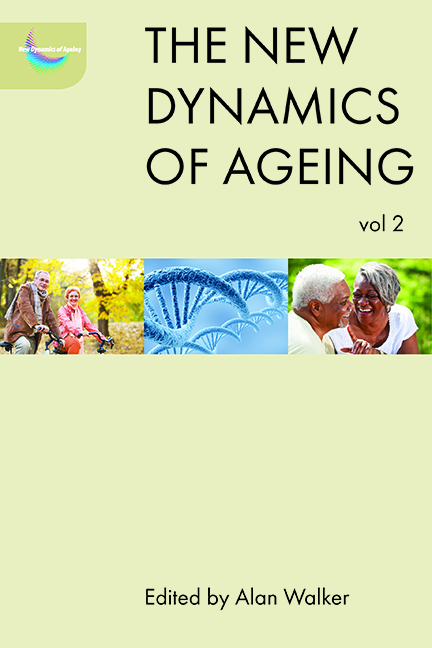nine - NANA: a tale of ageing and technology
Published online by Cambridge University Press: 13 April 2022
Summary
Introduction
Nutrition plays a key role in later life health and wellbeing. Older people face a high risk of nutrient deficiencies and malnutrition that can lead to sarcopenia, loss of skeletal muscle mass and strength. A recent review identified that sarcopenia was associated with functional decline, higher rate of falls, higher incidence of hospitalisations and increased mortality (Beaudart et al, 2017). Understandably severe sarcopenia is extremely disabling as it prevents independent living and places an increasing burden on care providers.
Avoiding late life malnutrition is dependent on a number of factors including physical, mental and cognitive health. However, the relative impact of each of these factors and the relationships between them are not well understood. Physical factors, such as problems with chewing, swallowing and impaired mobility, all contribute towards nutritional decline (Hickson, 2006). Mental health status also plays a part, particularly depression, which has been identified as a predictor of poor appetite in older adults (see Engel et al, 2011). Treating depression can be an effective way of increasing appetite and improving nutritional status, but it is commonly under-diagnosed and under-treated among older people (Allan et al, 2014).
There is also growing evidence of associations between diet and cognitive function. Older people with dementia or cognitive decline have a poorer nutritional status than those without (Atti et al, 2008), with increasing dementia severity related to poorer nutritional status (Riccio et al, 2007). The potential for diet to protect against cognitive decline in older people is not currently well understood as much of the epidemiological research has not been supported in trials, and more research is needed to confirm the impact of changing whole diets on cognitive measures (Smith and Blumenthal, 2016).
To explore the associations and interactions between mental and physical health and diet, new intervention and prospective cohort studies are needed (Psaltopoulou et al, 2008). Such research is challenging to complete with older adults, as both ageing itself and the accompanying cognitive and physical decline are progressive and dynamic. Existing tools for measuring diet, cognition and physical activity typically provide snapshots of the situation and cannot identify rate of decline nor readily distinguish cause and effect.
- Type
- Chapter
- Information
- The New Dynamics of Ageing Volume 2 , pp. 157 - 176Publisher: Bristol University PressPrint publication year: 2018

